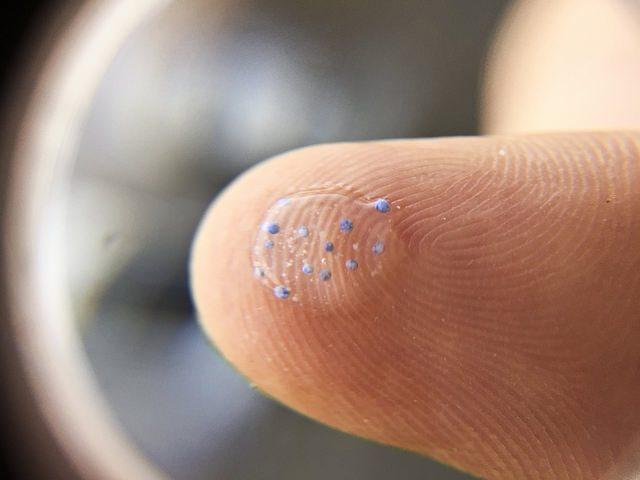
Microbeads were once touted by personal care and consumer packaged goods (CPG) companies as the perfect way to brighten smiles and leave skin perfectly exfoliated.
Then, report after report suggested these tiny little beads -- often hardly visible to the naked eye -- had become an enormous environmental nightmare. Many municipal systems could not filter out these tiny particles of plastic. So, they made their way into waterways -- where marine life and seabirds happily gobbled them up, to their detriment and that of their ecosystems.
Companies struggled to find a solution or alternative to this problem as it became apparent that humans were already using the oceans as a massive plastics dumping ground. Many of the world’s leading personal care brands insist they are finding solutions. In most cases, these efforts combined research into natural alternatives or phasing out microbeads entirely. Nevertheless, environmental organizations, including Greenpeace, say not enough has been done.
To that end, Greenpeace recently evaluated the world’s largest personal care and CPG companies’ commitments on microbeads. While its report highlights the companies that are taking action to confront this growing problem, Greenpeace also calls out many companies for having vague or opaque commitments – that is, if they have even made a commitment at all.
So who are the leaders? Amongst the highest scorers are American firms Colgate-Palmolive and L Brands (which owns Bath & Body Works, Victoria’s Secret and Pink). The German companies Belersdorf and Henkel -- which are the world’s seventh and eleventh largest personal care companies, respectively -- are also singled out as having the most proactive plans related to microbeads. Greenpeace lauds the companies' commitments to reformulating their products without microbeads. But with such praise comes caveats -- which in general are that companies are not applying their policies to all of their products, or they are only applying their elimination of such ingredients to a certain type of plastic.
Some of the world’s most recognizable brands are in the bottom tier of this list. Greenpeace targeted Amway, Estee Lauder, GlaxoSmithKline, Mary Kay, Revlon and LVMH (as in Louis Vuitton and other luxury brands) for what it says is a lack of any publicly issued policy on microbeads, or a very narrow definition of how the companies describe the term. “It is silent” is the typical barb throughout the report when Greenpeace describes how a company is taking on the microbeads challenge.
In Greenpeace’s view, the only viable solution is a ban on microbeads. Its United Kingdom chapter, for example, is urging the country’s new prime minister, Teresa May, to pass a law barring microbeads from cosmetics and other personal care products.
U.S. President Barack Obama signed federal legislation late last year that will ban microbeads from “rinse-off cosmetics” by July 1, 2019. Some U.S. states, including California, had already banned such ingredients from personal care products. The new federal law is hardly an outright ban, however, so look for CPG companies to split hairs with federal regulators over what exactly that law will cover in the future.
Leave it to environmental groups to convince companies that the trillions of microbeads that end up in waterways and create problems for marine life have no obvious solution – other than a total ban.
Image credit: MPCA Photos/Flickr

Leon Kaye has written for 3p since 2010 and become executive editor in 2018. His previous work includes writing for the Guardian as well as other online and print publications. In addition, he's worked in sales executive roles within technology and financial research companies, as well as for a public relations firm, for which he consulted with one of the globe’s leading sustainability initiatives. Currently living in Central California, he’s traveled to 70-plus countries and has lived and worked in South Korea, the United Arab Emirates and Uruguay.
Leon’s an alum of Fresno State, the University of Maryland, Baltimore County and the University of Southern California's Marshall Business School. He enjoys traveling abroad as well as exploring California’s Central Coast and the Sierra Nevadas.














